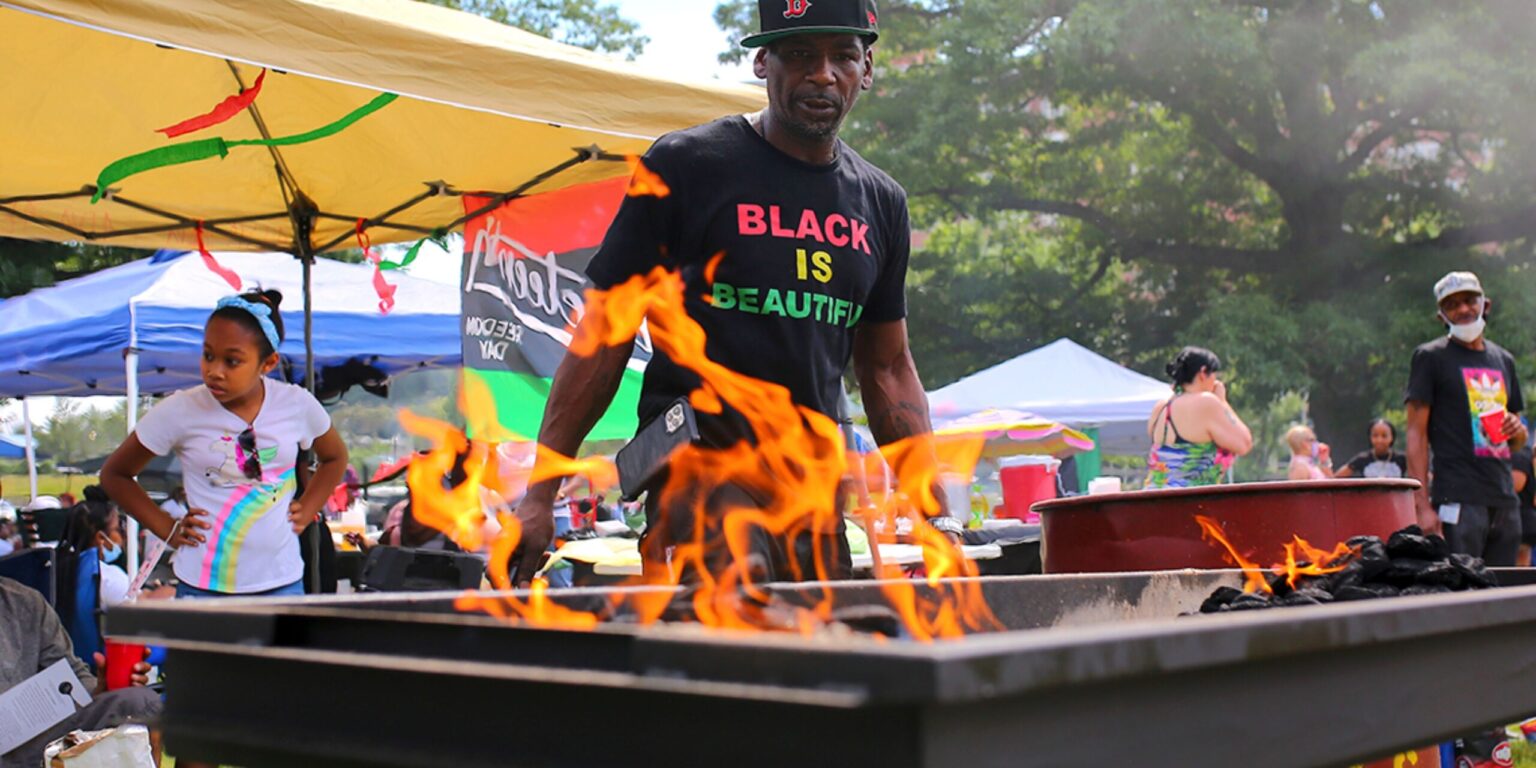On June 19, 2025, Americans across the country marked Juneteenth, a powerful federal holiday that commemorates the emancipation of enslaved people in the United States. Celebrated annually, Juneteenth honors the moment when enslaved African Americans in Galveston, Texas, were informed of their freedom on June 19, 1865, over two years after the Emancipation Proclamation was signed. This year’s observances held particular significance, as communities came together to reflect on the ongoing journey of Black Americans and the progress yet to be made.
Celebrations in Portsmouth, New Hampshire
In Portsmouth, New Hampshire, Juneteenth celebrations were organized by the Black Heritage Trail, which has long worked to preserve and promote Black history in the region. The events included a lively community dance, a rededication ceremony of the African Burying Ground Memorial Park, and a series of talks and performances to highlight Black heritage. This park is a historic site that serves as a poignant reminder of the thousands of African Americans who were buried there during the 18th and 19th centuries.
JerriAnne Boggis, Executive Director of the Black Heritage Trail, emphasized the importance of reevaluating American history through the lens of Black descendants. As the nation nears the 250th anniversary of the Declaration of Independence in 2026, Boggis believes that it’s crucial to confront the complex and often painful parts of U.S. history, especially for Black Americans whose stories have historically been marginalized. “Juneteenth is not just a celebration of freedom, but a call to remember the fullness of our history,” she stated.
National Recognition and the Path to Statewide Recognition
While Juneteenth has seen a surge in national recognition and celebration since its establishment as a federal holiday in 2021, not every state has formally recognized the day. New Hampshire, for example, has yet to designate Juneteenth as an official state holiday, despite the growing momentum across the country to do so. This continued absence of statewide recognition has sparked discussions on how states can better honor the contributions and struggles of African Americans throughout U.S. history.
Many advocates for Juneteenth, including local leaders like Boggis, are calling for more consistent efforts at both the state and national levels to foster greater understanding of Black history. This includes making Juneteenth a permanent holiday across all states and expanding educational initiatives to ensure the holiday’s true significance is understood by all.
Broader National Celebrations
Juneteenth’s rise to prominence is part of a broader societal shift towards greater awareness and acknowledgment of Black history. Across the nation, cities and towns hosted events ranging from family-friendly festivals to solemn reflections on the history of slavery and its continuing impact. In cities like Atlanta, Houston, and Washington D.C., parades, concerts, and educational panels helped make Juneteenth a time of both celebration and contemplation.
The holiday’s significance continues to grow, and for many, it represents not only the end of slavery but the ongoing struggle for equality and justice. As people from all walks of life gather each year to reflect on this pivotal moment in American history, it serves as a reminder of the country’s complex legacy and the continued work needed to ensure that all Americans are treated equally and with respect.
In 2025, Juneteenth serves as both a celebration of progress and a reminder of the work that lies ahead, especially as the nation prepares for the 250th anniversary of the Declaration of Independence. This significant milestone provides an opportunity to further push the conversation around Black history, reconciliation, and the future of freedom in the United States.
Looking Forward
As Juneteenth celebrations continue to grow in size and significance, there is a collective hope that future generations will remember the fight for freedom and equality not just as a part of Black history, but as an integral chapter in the shared story of all Americans. For now, communities like Portsmouth are leading the charge in bringing historical truths to the forefront, ensuring that Juneteenth will continue to hold meaning for years to come.
